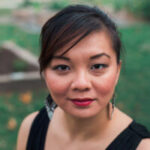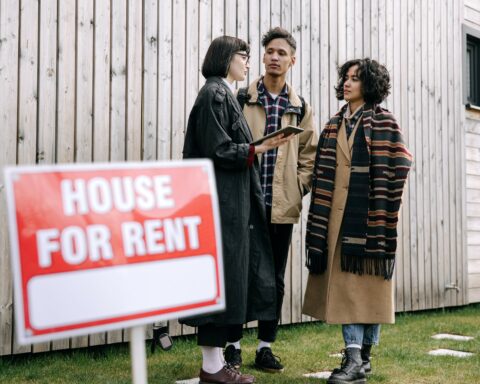One outreach worker is creating a bilingual volunteer program because there’s not enough support for Chinese seniors, especially those in Vancouver’s Chinatown.
Chanel Ly, a 23-year-old outreach worker who is part of the Downtown Eastside SRO Collaborative, initiated the Youth for Chinese Seniors program because when she sees all these seniors – who are predominantly female – she thinks of her grandma. She cannot imagine not helping them out.
“I can’t stand seeing seniors being neglected. It’s disrespectful.”
She points out that it’s part of the Chinese cultural values to care for elders.
Ly will connect bilingual youth volunteers to seniors in the Strathcona area, the city’s oldest neighbourhood.
Tasks for volunteers include translating legal documents, taking seniors to the doctor’s office or the pharmacy, and informing seniors about their rights as tenants.
The biggest problem for Strathcona seniors is affordable housing.
One of the biggest challenges Ly faced while building this program from scratch was the amount of work required because there was no previous infrastructure, despite the demand for service that was culturally appropriate and in Chinese.
The program will run from this month to March next year, Ly says, because that’s when grant funding ends.
“The goal is to improve the quality of life for Chinese seniors.”
Addressing Chinese seniors’ challenges
The biggest problem for Strathcona seniors is affordable housing. With condo developments in the area, rents are going up and pushing out the original residents.
Vancouver activist Sid Chow Tan believes the Chinese benevolent and clan associations should contribute to Chinatown by providing their buildings and property for social housing. These associations, grouped either by provinces in China or last name “clans,” were community centres.
Historically, most of the association buildings were community homes and bachelor suites for Chinese immigrants, a demographic regularly ignored by the government and institutions, Tan says. “It’s sad to see space that used to house hundreds and hundreds of bachelors are now used for mahjong and ping-pong.”
Another concern for seniors is health, says Ly. “Doctors are not always accessible. Drop-in clinics are not always available. Or opened only during certain hours.”
Volunteers will help by accompanying seniors to the doctor’s office and translate if needed.
“We want to fill in the gaps between the generations.” – Chanel Ly, Downtown Eastside SRO Collaborative
Racism against Chinese seniors does happen at community centres, due to an unfounded belief that there’s no such thing as poor Chinese people.
“There are poor Chinese,” Tan said at a July event where bilingual volunteers and seniors met. “The Chinese poor doesn’t want to be seen as poor. They just bear it.”
Tan says they don’t want to “lose face.” In Chinese, the phrase means losing a combination of self-respect, honour and reputation.
Community survival
Despite the barriers they encounter, these seniors survive by banding together. “They’re always self-sufficient and resourceful. They have their own networks,” Ly says.
However, Mandarin-speaking seniors are even more marginalized, she says, because what little support there is, it’s usually for Cantonese speakers.
Tan says the boomer generation couldn’t leave Chinatown fast enough, but the “echo-boomers” came back. “They see something to save and protect. It’s sacred ground to Chinese people.”
“It was where people organized to vote, worked to send money home,” he says. “Now it’s sullied by market forces, economic greed and political entitlement within the community.”
Three in five Canadians say their families are not in a good position, financially or otherwise, to care for older family members requiring long-term health care.
Connecting generations
The program also promotes intergenerational interactions. Says Ly, “We want to fill in the gaps between the generations.”
Ly started collecting volunteers before the summer and will have check-in meetings with youth once a month. At the moment, she has 15 dedicated volunteers lined up.
The online volunteer form is comprehensive, even asking for preferred pronouns. The program organizer says she wanted the volunteers to feel comfortable.
When asked if seniors – especially those with a traditional mindset – would be upset with transgender volunteers, Ly says the seniors might accept them.
She says they’ll notice more that the volunteer is a young, Chinese-speaking person. They’ll be grateful for the assistance, and would get to know them as human beings with good intentions.
Seniors’ health care: the numbers
A report titled “2015 National Report Card: Canadian Views on a National Seniors’ Health Care Strategy” by Ipsos Reid Public Affairs for the Canadian Medical Association said seniors today represent 15 per cent of the population. In 1971, seniors only represented eight per cent of the population.
Three in five Canadians say their families are not in a good position, financially or otherwise, to care for older family members requiring long-term health care, the report said.
Respondents 55 years of age and older indicate they want more home care and community support to help seniors live at home longer as a key priority for the government.
Ninety per cent of Canadians surveyed believe we need a national strategy on seniors’ health care that addresses the need for care provided at home and in hospitals, hospices and long-term care facilities, as well as end-of-life care.
Deanna Cheng is a freelance journalist who has been published in various publications such as Vancouver Courier and Asian Pacific Post. She often covers culture, intersectionality and Vancouver.





